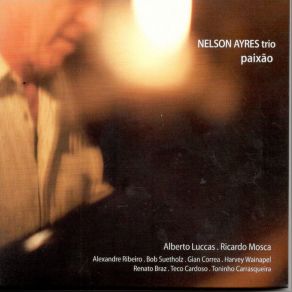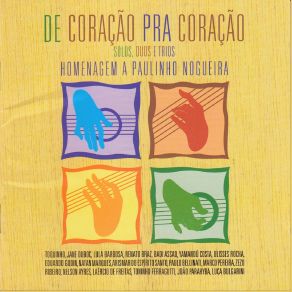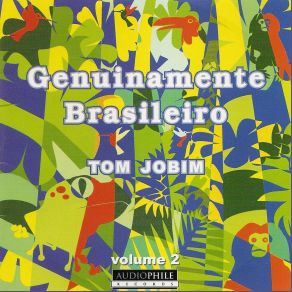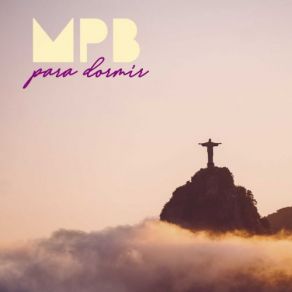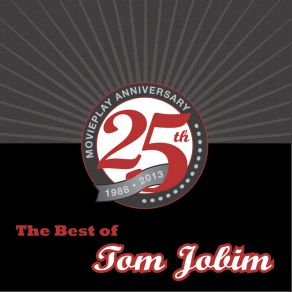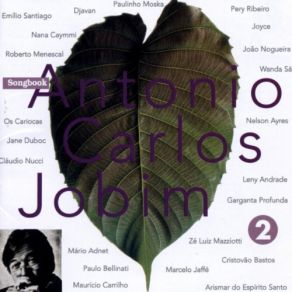Nelson Ayres
Wikimp3 information about the music of Nelson Ayres. On our website we have 3 albums and 6 collections of artist Nelson Ayres. You can find useful information and download songs of this artist. We also know that Nelson Ayres represents Latin genres.
Biography
[Edit]Nelson Ayres is a prominent Brazilian arranger/pianist/composer who has performed/recorded with Dizzy Gillespie, Benny Carter, Milton Nascimento, César Camargo Mariano, Chico Buarque, Simone, Dori, and Nana Caymmi, and others. As musical director, composer, and arranger of plays and ballets (such as Cidadão Corpo by Ivaldo Bertazzo) was awarded several times. He also has had noted activity as an arranger and conductor of the Orquestra Jazz Sinfônica.
The son of a female pianist, he became fascinated by Luiz Gonzaga at five, when he was presented with his first instrument, an accordion. Enrolling at São Paulo's conservatory, at 12 he changed to the piano, never following the strict classical apprenticeship. Even then, he studied with Paul Ursbach from 1959 until 1962. Joining the São Paulo Dixieland Band in 1961, he stayed with them until 1968, participating on the album recorded in 1963. In 1967, he joined Os Três Morais, recording in that year his first awarded advertising soundtracks. He began his career as an arranger for singers in 1968 and was musical director for the play Chiclete com Banana (directed by Augusto Boal). In 1969, he went to the U.S. to study at the Berklee School in Boston; along with Victor Assis Brasil, the two were the first Brazilians to study there. He worked there as an arranger and pianist, accompanying Astrud Gilberto and performing in Airto Moreira's band at live shows and in the recording of the album Free. Returning from Berklee, he was sought by professional musicians like Hector Costita, Amílson Godoy, and Roberto Sion who were eager to get jazz information in a time when he wasn't popular at music schools in Brazil. The informal encounters yielded written arrangements and improvisations the Nelson Ayres Big Band naturally followed, featuring five saxes, four trumpets, and four trombones. They rehearsed during the weekly day off of the bar Opus 2000, until it began to crowd, keeping the band active for eight years, from 1973 to 1981.
At the same time, he and other bandmembers began to teach at the Fundação das Artes de São Caetano, having as students several of the members of the future Banda Mantiqueira. His arrangement for "Como um Ladrão" (Carlinhos Vergueiro) won first place in the Festival Abertura (Globo Network, São Paulo). Ayres recorded his first solo album in 1979 (MPBC series, Philips), which had "Projeto de Jingle" re-recorded by Osvaldinho do Acordeon. In the same year, he co-organized and performed in the I Festival de Jazz de São Paulo. Two years later, he released a second solo album, Mantiqueira (Som da Gente). While still working with the big band, Ayres had to deal with the common problems of a group of many members in which all were requested professionals, with absences and substitutions. Looking for a smaller ensemble, he began to play with Rodolfo Stroeter (bass) and Azael Rodrigues (drums), in the Lei Seca bar (São Paulo) where the bohemians of that city gathered.
Soon Sion joined the group and Costita came a little later. After awhile, they decided to assume that it really was a group, creating the Banda Pau Brasil, named by Rodolfo after Oswald de Andrade's Manifesto Antropófago. While the Brazilian instrumental groups were playing jazz-influenced pop, the Banda Pau Brasil brought a deeper interest in Brazilian music. The band recorded three albums before he left, and toured Europe and Japan several times. In 1985, Ayres was invited by César Camargo Mariano to take part in his project, Prisma, which consisted of the two keyboardists ahead of enormous electronic paraphernalia, the first initiative in that sense in Brazil, with which they toured the country for two years. In 1998, Ayres presided over the jury of the First Visa Prize of Instrumental Music, at which the winners were André Mehmari and Célio Barros, and Nelson Veraz (who played with Aldo Romano) reached fourth place. Since 1992, Nelson Ayres has been the conductor and artistic director for the Orquestra Jazz Sinfônica do Estado de São Paulo.
Collections
Title: Antonio Carlos Jobim Instrumental Songbook Volume 1
Genre: World Music, Latin
Title: Tom Jobim Genuinamente Brasileiro vol.2
Genre: World Music
Title: Antonio Carlos Jobim Songbook Vol. 2
Genre: World Music, Latin
Title: Genuinamente Brasileiro, Vol. 2
Genre: World Music
Title: MPB Para Dormir
Featuring albums
Title: Genuinamente Brasileiro - Tom Jobim
Artist: Vários Artistas / Varios Artistas
Genre: World Music
Title: Música & Músicos / Musica & Musicos
Artist: Alexandre Leão / Alexandre Leao
Genre: Latin Folk
